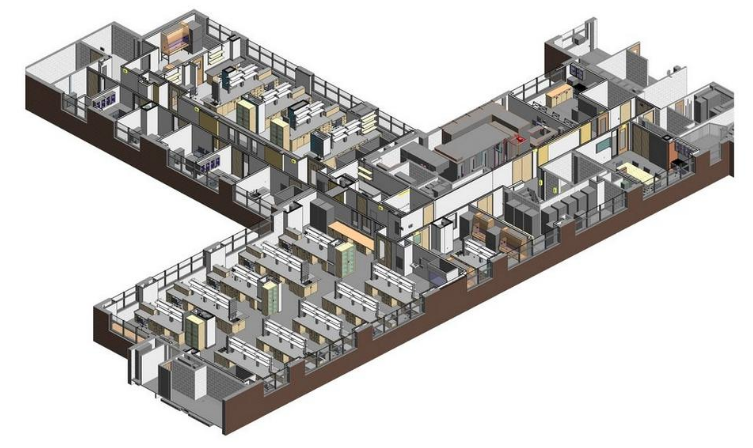
The UM System Board of Curators approved the preliminary plans for several major capital projects to benefit each of the UM System campuses and MU Health Care earlier this month.
Following further planning and development, the proposed projects will be presented with the UM System’s overall capital priority plan to the March 2018 Board of Curators Finance Committee for review.
“With the decline in state funding and restrictions on tuition, our budgets have been balanced, in part, by delaying improvements to many of our facilities across the four campuses,” David Steelman, Board of Curators finance committee chair, said in a UM System news brief. “This is the first step in our capital planning process.”
Steelman said this new process to budget for campus growth, approved by the curators in September, will allow the board to have an informed capital plan that is driven by the strategic priorities of each campus.
Each project has been prioritized numerically on the five-year fiscal plan of its respective campus or, in the case of some projects, on MU Health Care’s. MU spokesman Christian Basi said the five-year plan, which will be in effect from 2019 to 2023, will be updated annually.
“This new process ensures that our board, as the university’s governing body, has input at the earliest stages of capital planning,” UM System President Mun Choi said in a UM System news brief. “This will ensure that our campus and health system projects align with our mission, long-term strategy and financial plan while also providing a valuable return on investment.”
The first prioritized project for MU’s campus is the construction of the Translational Precision Medicine Complex, which will cost $150 million to construct and $4.6 million in operating expenses each year, according to the UM System’s preliminary Capital Project Plan.
The new building will benefit several departments at MU and provide multidisciplinary laboratory space along with analytical instrumentation, computational processing and “pilot” scale manufacturing under one roof, College of Engineering dean Elizabeth Loboa said in an email.
“The TPMC will play a critical role in advancement of biomedical innovations from the College of Engineering, particularly in the precision medicine realm,” Loboa said in the email.
Loboa said precision medicine, an emerging approach to disease treatment and prevention that accounts for individual variability in genes, environment and lifestyle, will revolutionize medical treatment in her lifetime.
“This will be a truly incredible facility that will put Mizzou at the forefront of this cutting-edge field,” Loboa said.
Along with the College of Engineering, the School of Medicine, College of Veterinary Medicine and other campus core labs will benefit from the new building. The complex will support, on average, 125 graduate, doctoral and postdoctoral students per year once fully operating, according to the preliminary plans.
Loboa said MU is one of only 10 universities in the country to have colleges of those three disciplines on one campus. This quality, she said, makes it uniquely situated to be a national, if not global, leader in the field of medical treatment, and this new complex takes the university closer to meeting that goal.
“[The TPMC will provide] the synergistic platform needed for integration of biomedical, computer, electrical, mechanical and industrial engineering with both veterinary and human medicine,” Loboa said.
Other projects planned for MU’s campus include, in order of priority, a renovation and addition to the School of Nursing, an upgrade and maintenance of the research vivarium, an addition to the system’s library depository and a new journalism building upon redevelopment of Neff Hall’s current site, according to the preliminary plans.
Basi said each of the projects varies in complexity, time and costs, which will be paid using money from the university’s internal sources, gifts, bonds and state funding. According to the preliminary plans, this funding is to be solicited in the Fiscal Year 2020 State Capital Appropriations Request following the overall plan’s approval.
“State funding is a critical component of many of our projects,” Basi said. “But, we also work to find other ways to raise revenue for these projects. We understand that budgets are tight everywhere, and we take our responsibility of being fiscal stewards of state tax dollars and tuition revenue very seriously.”
In regard to the other campus’ plans, some of the proposed projects of greatest significance include a new conservatory of music and dance at UM-Kansas City, an addition and renovation of Schrenk Hall at the Missouri University of Science and Technology and more space consolidation and infrastructure at UM-St. Louis.
According to the preliminary plan, the prioritized health care project is a new exterior for the Women’s and Children’s Hospital, which has been deteriorating due to suspected water infiltration.
Basi said the board is taking the planning and allocating of the financial resources entrusted to it very seriously because of the impact of these improvements.
“We understand that building these facilities will help our students in the long term,” Basi said. “They will be better facilities that will help our students learn in the best environments and be even better prepared to be competitive in the global job market when they graduate.”
_Edited by Olivia Garrett | [email protected]_